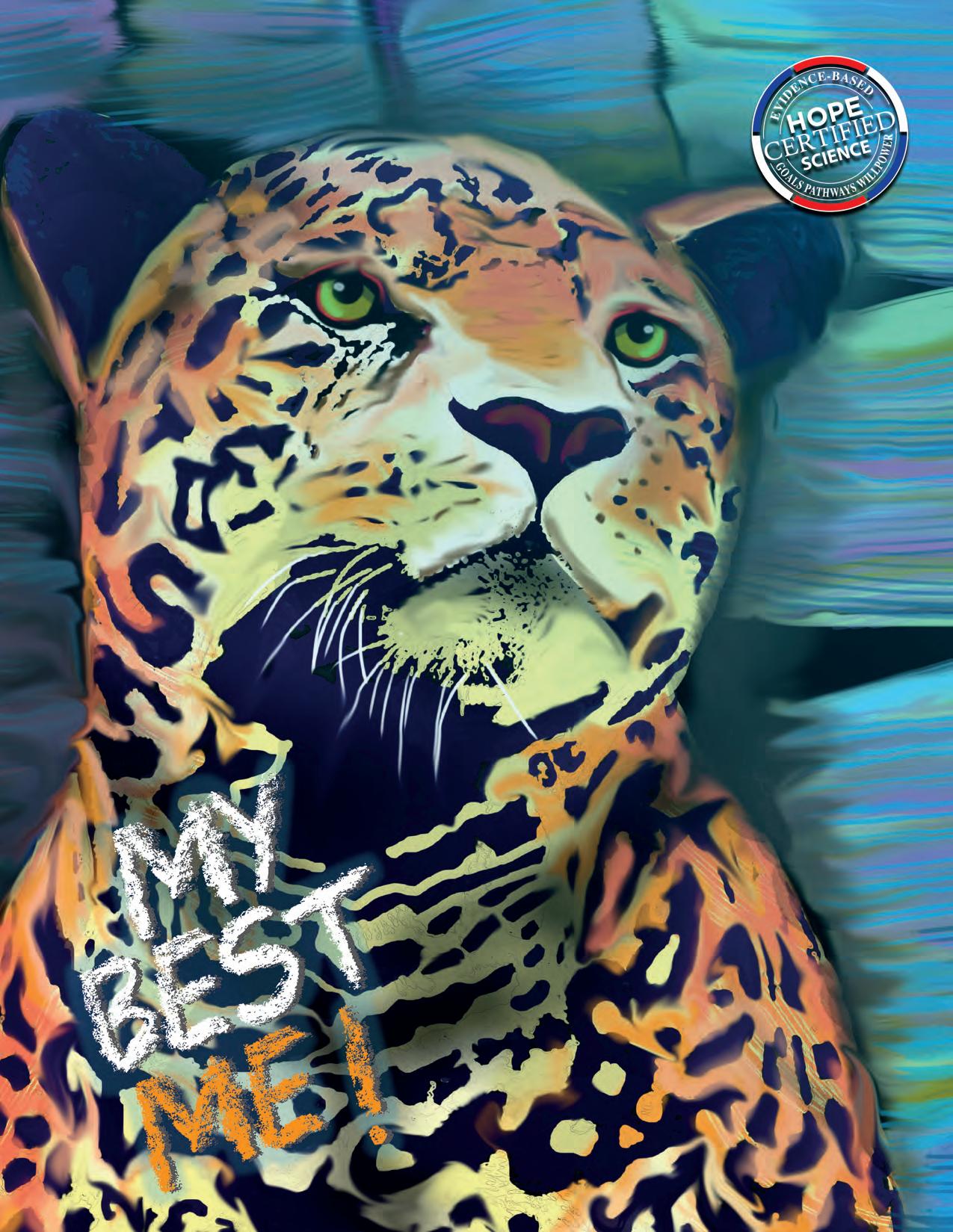
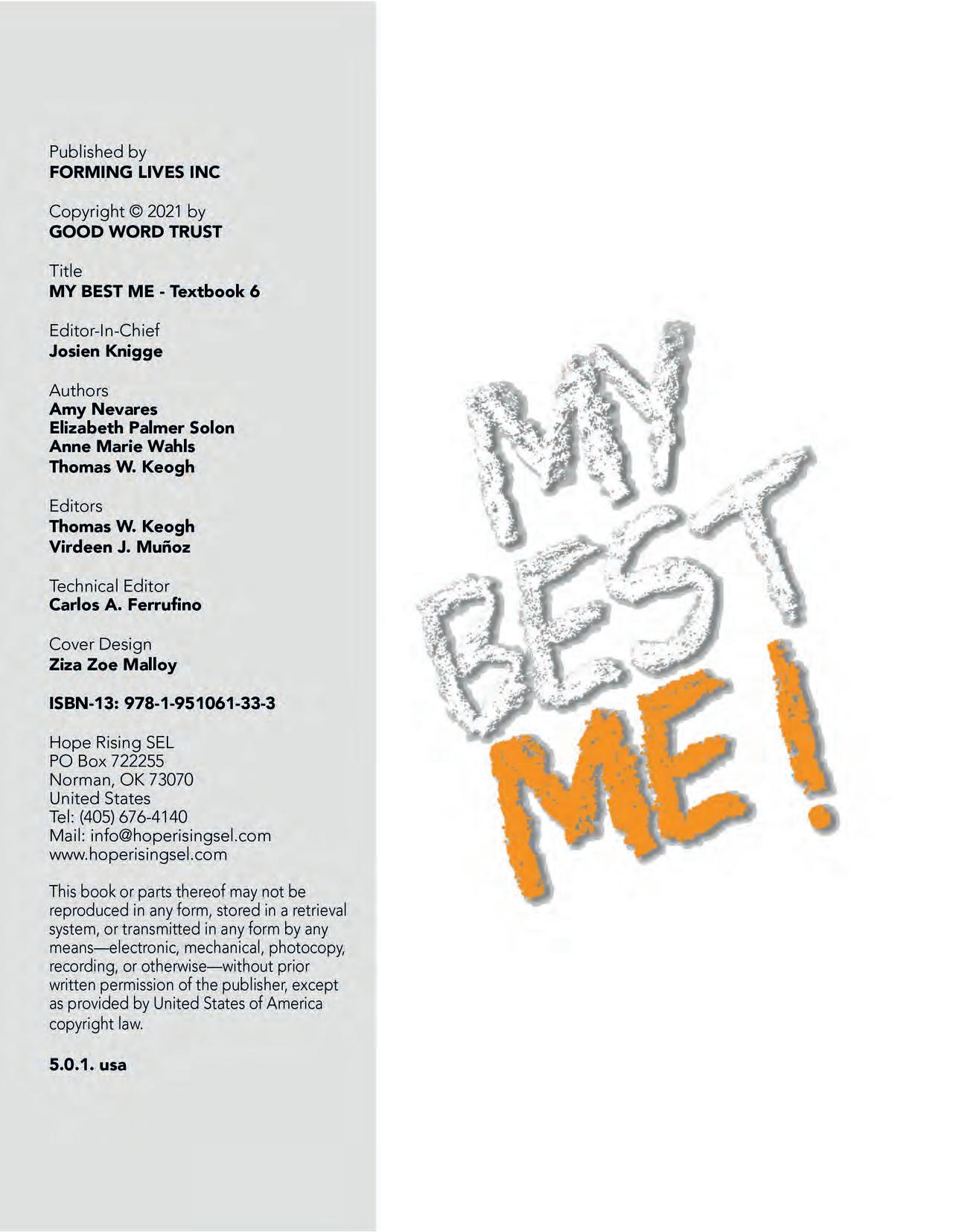
Hope Rising EDU info@hoperisingedu.com www.hoperisingedu.com
What does your future look like? Do you see yourself graduating from high school? Can you see yourself with a well-paying job, saving the world or helping others? Can you see yourself happy and secure?
Did you know that for any of these things to come true, you need hope? The science and power of hope is knowing you have the ability to make tomorrow better than today.
Hope has given sports underdogs the strength to win even though they did not have the best talent. Hope has empowered soldiers, sailors, airmen, and marines to win battles against overwhelming odds. Hope is how everyday heroes conquer fear and adversity.
The exciting news is My Best Me makes hope easy to learn. Social Emotional Learning increases your hope. More hope means better grades, thoughts, emotions, and behavior. Hope is a better future.
My Best Me will teach you that hope is not a wish or an emotion; it is a decision. Because hope is a decision and not a wish or an emotion anybody can have hope no matter who they are or the challenges they face.
Hope is like a treasure map.
1. You set a goal. The goal is the treasure, the short-term and long-term things you want in life.
2. You find a path. The path is the route to the treasure. It is a way to achieve your goals. You will discover that hardships and adversity just mean there is another path. The difference between success and failure is the ability to discover a path.
3. You cultivate desire. The desire gives you the willpower to get the treasure no matter what obstacles are in your way. It is the mental strength to stay on the path or find a new path no matter what happens.
2
Setting Goals – This is the process of identifying what you want to do or to have.
a. Setting a goal only works if it is something you really want. Obtaining your goal must be valuable to you. Ask yourself, “Will this goal inspire me?”
b. The goal you set can be short-term (something you want to have or do today or in a week) or long-term (something you want to have or do in the future). Goals with dates are powerful because they create a target.
c. When setting a goal, be very specific. Define your goal and what it means to you. Make it simple! For example: “Make good grades” is a poor goal because it is difficult to measure and it is not personal. “I am a straight A student that will graduate in the top quarter of my class” is a powerful goal because it is easy to measure and defines why it is important to you.
d. Write your goals down and put them where you can see them often.
Power Hint: Write down your most important goals. Put a red sticky dot or use a dark red crayon or marker to make small dot in front of each goal. Frame your goals like a picture and hang it where you will see it often. If you have a phone, you can put a small red sticky dot on the right-hand corner of your phone.
Finding Pathways – This is discovering how you will achieve your goal. The best way to understand pathways is to see it as the road between you and your goal. More than one road could lead to your goal. Very few roads are straight, they twist and bend just like you need to do to get to your goal.
a. A pathway solves the problem of how to get to the goal! The most successful people in life are good at finding pathways.
b. A pathway is a series of small steps that that move you in the direction of your goal.

Power Hint: Think of as many different ways to achieve your goal (funny, silly, crazy, impossible, serious, or outlandish) as you can. If you run out of ideas, ask your friends for help and get grownups involved. You will be shocked at the explosion of creativity released when you look for different ways to reach a goal.
Cultivating Willpower – This is why you will achieve your goal. If a goal is the destination and the pathway is the road to get there, willpower is the car that will take you there. The greatest goals in the world and best pathways are nothing unless there is willpower to succeed.
a. Cultivating willpower means finding the place inside of you that has the strength and desire to reach your goal. It is the intensity of your desire that will produce the energy to succeed.
b. Willpower is stronger than motivation. Power Hint: Spend 10 minutes daily with your eyes closed, meditating on having achieved your goal. See yourself at the end of the path in full possession of your goal. See it. Believe it. Own it.
3
“My Best Me” is your guide to discovering your true identity and purpose. Hope is important for your journey. Knowing who you are is the same as knowing where you are. When choosing goals and deciding on a pathway, knowing where you are gives you a place to start! Having a place to start will give you great confidence, a good attitude and the willpower to succeed.
4
CREATE LEADERSHIP AF M I L Y P U ESOPR WORK MPRODUCE YBEST ME C URRICULUM MYBESTME TEACHE R TEXT ANDTRAINING MYBEST ME PARENTS SUMMARIES LO VE COMMUNITY ECONOMY HEALTH IDENTITY ENVIRO N TNEM HOPE SEL teamwork • willpower • leadership • goal setting • growth mindset • problem solving time management • reasoning skills • organizing skills • strategic thinking • conflict resolution willingness to learn • creative thinking • stress management • finance management communication skills • emotional intelligence • nonverbal communication © copyright 2021
FA
M I L IES SCH O OLS CLAS S R OOMS
You will find five units that help you discover the building blocks of society.
IDENTITY
Discover who I am
My role


My personality
My character
HEALTH

Discover how to maintain order
Physical Mental
Emotional
COMMUNITY
Discover how to interact with others

Family People like me
People different from me Strangers
ENVIRONMENT
Discover why and how to manage nature
Natural resources

Plant life
Animal life
ECONOMICS
Discover how to multiply resources and produce wealth
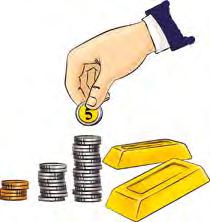
Income generation
Financial literacy
Resource management
5
READ
A story, a poem, a saying, or a script that adds to the subject
UNDERSTAND
To obtain knowledge, insight, and understanding through information
OBSERVE
To look, see, find, watch, and discover more
CREATE
To paint, color, or make in a personal manner
PLAY
Engage in an experience and discovery together
WRITE
To write, mark, or sketch personal ideas or discoveries
APPLY
To bring into action, put to use, and demonstrate understanding
GIVE
A contribution, present, or surprise to share with others
ACT
A task that involves direct experience and action
COMMENT
Discuss, consider, or examine certain subjects
REFLECT
Think, ponder, meditate, or wonder about important issues
LISTEN
To learn, write, sing, or listen to a song; enjoy a harmony of sounds
CONCLUDE
A closing statement on the lesson subject with a final thought
WATCH
Watch a clip or film section and analyze the information
6

7 Introduction: Health ....................................... 27 Lesson 9: The Privilege of Caring for Myself ..... 28 Lesson 10: Life Balance ................................ 30 Lesson 11: Growing My Brain ....................... 32 Lesson 12: Clean Inside and Out .................. 34 Lesson 13: Live Strong, Live Long! ............... 36 Lesson 14: Discipline and Structure Every Day ... 38 Personal Notes ............................................... 40 Introduction: Community .............................. 41 Lesson 15: My Best Friendships ................... 42 Lesson 16: The People I Love ...................... 44 Lesson 17: Helping Others ........................... 46 Lesson 18: Keys to Self-Control ................... 48 Lesson 19: My Screen World ........................ 50 Lesson 20: A Place to Fit In .......................... 52 Personal Notes .............................................. 54 Introduction: Environment ............................ 55 Lesson 21: The Treasures of Nature ............. 56 Lesson 22: Where My Responsibility Starts .... 58 Lesson 23: Expert Transformer .................... 60 Lesson 24: I Am Surrounded, Now What? ... 62 Personal Notes .............................................. 64 Introduction: Economics ............................... 65 Lesson 25: I Will Persevere .......................... 66 Lesson 26: Gratitude .................................... 68 Lesson 27: Time Is on My Side .................... 70 Lesson 28: Money, Money, Money! ............. 72 Lesson 29: Our Country’s Riches ................. 74 Lesson 30: Go for the Gold! ........................ 76 Hope ................................................................... 2 Going Deeper ................................................... 3 Hope Through Social Emotional Learning ............ 4 Competencies ................................................... 5 Understanding the Icons ................................... 6 Glossary ........................................................... 78 Introduction: Identity ...................................... 9 Lesson 1: Why My Best Me? ....................... 10 Lesson 2: The Cycle of Life ......................... 12 Lesson 3: The Way I Feel ............................. 14 Lesson 4: I Am Special, I Am Unique .......... 16 Lesson 5: I Belong ....................................... 18 Lesson 6: Humans: Moral Creatures? .......... 20 Lesson 7: My Purpose ................................. 22 Lesson 8: Destiny Dreams ........................... 24 Personal Notes ............................................... 26
Lesson Goal
To learn that humans are different from all other living beings, because we can make moral decisions
Pathways
Play - What would a _______ do in front of a camera?
• Think of an animal that you like.
• Shh, don’t say it!
• Imagine how it would behave if it were in a field alone with a little lost child and you began recording it.
• Act it out or describe it in front partner.
• Have your partner guess what animal you are imitating.
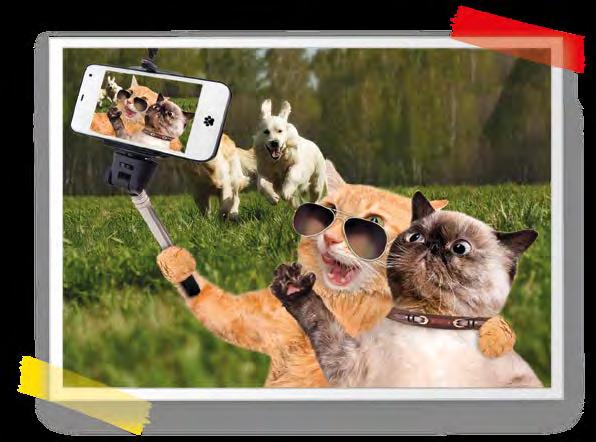
• Switch!
Comment
How would the animal you chose behave if it were being recorded?
How would you behave if you were being recorded?
What makes you different from the animal you chose?
What things do humans do that animals don’t do?
What things do animals do that humans don’t do?
In what ways do humans look similar to animals?
How do humans differ from animals?
Understand
Every living being has its own characteristics, abilities, body shape, and mental skills. We, as humans, are unique in our ability to imagine ourselves in someone else’s shoes. We can feel empathy; therefore, we can live for something greater than ourselves. We are not led by instinct, but by purposeful planning as we serve others. We have a mind full of ideas that can be developed, thoughts that can be expressed, and feelings that we can share with those around us. Our personality makes up who we are and we have the innate ability to create, invent, and imagine.
What does “moral” mean? A common definition of a moral person is someone who is
20
concerned with principles of right and wrong, life and death, healthy and unhealthy choices, etc. An alternate way of saying it is someone who holds or manifests healthy principles of proper (or life-giving) conduct.
Humans can choose what is morally correct and upright. We have a free will, meaning we have the choice to make our own decisions. We can also set goals for our lives, unlike animals, who act and live purely by instinct. We can relate to other human beings by seeking the common good, and establish relationships based on love, respect, and kindness. As people, we can even offer our time, talents, and gifts to help others. Humans can create objects and services that can advance the world we live in. With the abilities we have, we must ask ourselves the question: are we morally superior to animals?
Act - Honoring my friends
• Pair up with a friend from your class and brainstorm, discussing and jotting down a list of characteristics that make each of you unique and special. ______________________ ____________________________________________________________________________ ____________________________________________________________________________
• On a separate page, write a letter thanking your classmate for being themselves and for their friendship. (Remember, write in a manner you would like to be written to.)

Give

Share your letter with your friend!
Reflect
How are we different from other living beings?
Are humans more important than other creatures? Why or why not?
Can humans behave like animals? What is our role or job as humans here on Earth?
I am a part of the human race and have the ability to make moral decisions.

Identity
21
Willpower
Lesson Goal

To understand that my skills and intelligence can grow throughout my entire life
Pathways
Watch
Take time to watch this clip:
Understand
Over 30 years ago, a college professor named Dr. Carol Dweck began to study why some students are easily discouraged when they fail, while others are not as affected. Through many studies about students’ behavior, she concluded that the brain can adapt and grow, and can get stronger (smarter), like a muscle. She called this ability a Growth Mindset. The key was how students dealt with let-downs they encountered. This is called grit, which is courage, determination, and the toughness to overcome obstacles.
Cement and sand look almost the same. The difference comes when you add water. Adding water to cement will harden it to concrete. Adding water to sand lets you shape it into sand castles. You can add more sand and water, change the shape and build anything you want. Your brain is like wet sand. You can learn new skills and develop other talents. You can be smarter. You can study to be a good student in any subject. This is Growth Mindset. You can be who you want to be.
Just like the girl in the video “Soar,” you too can have a Growth Mindset to overcome obstacles. You “grow” your brain and decide to take charge of how you learn!
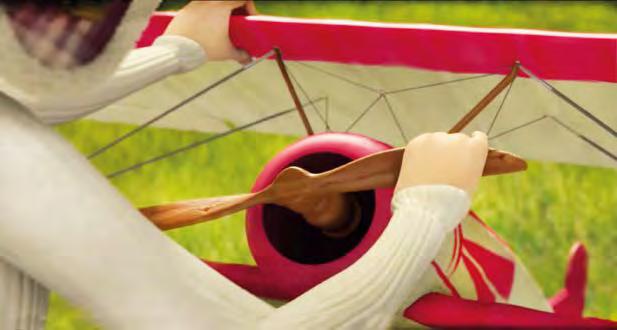
Read
Michael Jordan is known as one of the greatest basketball players of all time, but was not always a success. In fact, he was cut from his high school varsity team as a sophomore. He had to work very hard to get to where he eventually ended up. He said, “The key to success is failure … I’ve missed more than 9,000 shots in my career. I’ve lost almost 300 games. Twenty-six times, I’ve been trusted to take the game-winning shot and missed. I’ve failed over and over and over again in my life. And that is why I succeed.”
32
4yu.info/?i=95101
Watch
Michael Jordan had a Growth Mindset. He kept challenging the limitations he met, pressing through disappointments and letdowns. He did not view himself as a failure, but used his grit to keep pressing through.

We all fall down, but we choose whether or not to get back up and move forward. We have the choice to see our mistakes as opportunities to get smarter and learn from them. Or, we can believe that we are failures and that we will never understand or conquer whatever is challenging for us.
Write

4yu.info/?i=95102

1. Write down at least one thing that you feel you are talented in or capable at: _____________________________________________________________________________
2. Write one thing that you want to improve on or have an interest in: _____________________________________________________________________________
3. Find someone in your class who is talented in the area you want to improve in. In turn, help someone in your class who wants to explore a talent of yours.
Act
Have students volunteer to run “mini workshops” in class. For example, a student who is good at drawing can help others draw, a musician can help those who want to learn an instrument, a basketball player can teach a group how to shoot more accurately, etc. Make the groups small enough that every participant gets to practice their new skills. Encourage students to join a group that is not one of their strengths. For instance, if someone is a great athlete, but doesn’t know how to play guitar (but would like to learn), have them take the music workshop. Take time each day to attend your mini workshop.
Reflect
Why is having a Growth Mindset important for my future? How can having a Growth Mindset help me overcome an obstacle I am facing today? Do I feel better about learning a new skill now that one of my peers has helped me get started? Why or why not?
Willpower
When I apply myself, keep trying, and refuse to give up, I will grow and improve.
Hea lth
33
Lesson Goal
To recognize that humans have the power to use selfcontrol to make their environment a safer place
Pathways
Observe the following images and write the name of who the “architect”of each creation may have been.
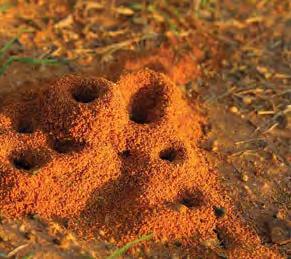





What are these constructions used for? Which house is most complex? How? Why?

Write
Look up the definition of the following words:
Instinct: ______________________________________________________________________

Intuition: _____________________________________________________________________
Inner voice: ___________________________________________________________________
Understand
Humans and animals have things in common: they eat, rest, move, mate, and build homes to protect themselves. In addition, they communicate, but in different ways. Even though both humans and animals have ways to communicate, and some animals are extremely intelligent, animals live by instinct and do not have the same capabilities as human beings. Most animals, for example, exhibit “fight or flight” behavior when confronted or threatened. You have probably seen a rabbit run away when you approach it, or a bird fly away.
Humans clearly have functions that animals do not, including a free will, the power of choice, and the ability to evaluate and plan, just to name a few.
48
Humans do have some basic instincts that lead them, such as the “fight or flight” reaction when confronted with danger or a perceived threat. However, it is our intuition and inner voice that guides us to ask questions such as:
• Who am I?
• What is my purpose?
• Why am I here?
• Are my actions healthy or unhealthy?
These types of questions allow humans to reason, evaluate, plan, and make choices that can go against basic instincts. For example, if you ran away (“flight”) or yelled at your best friend (“fight”) every time you got in an argument with them, would that friendship remain healthy?
*** Some of us were exposed to trauma (emotional or physical stress) when we were very young, which might lead us to “fight or flee” today. If you suffered from such trauma, tell a trusted adult, so you can get the help you may need.
Watch
Is fear “all in our head”?
Play - Role Play
1. As a class, brainstorm situations, both in and out of the classroom, when students need to practice self-control and use their intuition and inner voice.
2. In pairs or groups of 3, create a scenario where a student or group of students need to practice self-control. They will need to respond not based on their basic instincts, but rather by following their intuition and inner voice. The first part of the exercise should present the situation where the student(s) did not practice self-control, and the second half should entail the student(s) practicing self-control. Be creative! Present your role plays to the class.
4yu.info/?i=95171

Reflect
How does an animal react when someone or something upsets it?

How do I react when something or someone upsets me? Do I fight or take flight?
What does an animal do when someone mistreats it?
What do I do when someone mistreats me?
Can I change how I react to the people and things around me?
How can I possess self-control rather than yelling or running away?
What emotion or fear makes me want to run away or hide?
What do I do when someone’s faux pas causes me to laugh or make a comment when I know I shouldn’t?
Willpower
As a human being, I can control my basic instincts and impulses and use my inner voice to make my decisions.
Com munity
49
Pathways
To learn to be proactive and care for the natural environment
As I was telling you the other day, I ran across a friend I had not seen in
Sorry to interrupt
Comment
Would you have done anything differently in this situation? Why?
Have you ever thrown trash on the ground? What happened?
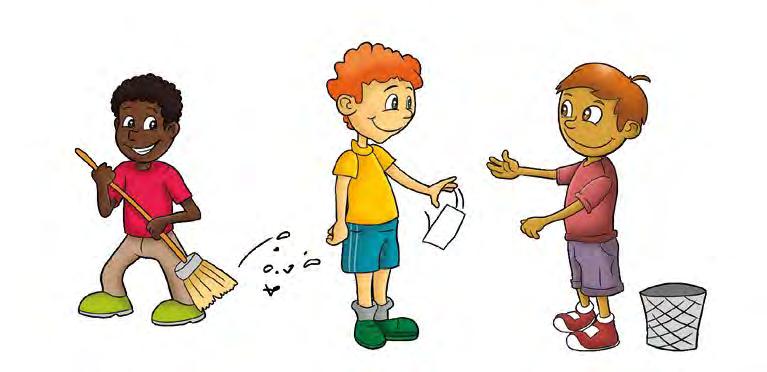
Have you seen other people throw trash on the ground?
Do you ever pick up trash you did not throw on the ground?
Is it okay to throw trash on the ground, knowing that someone’s job is to pick it up?
Is it okay to throw trash into a lake or a river, since it disappears under the water?
What do you think happens to it?
Understand
Our natural environment not only gives us the resources we need for life, but also provides us with great beauty and opportunities to relax and exercise. Sometimes we are so caught up with ourselves that we assume everything will be available, clean, and ready for us to use at the snap of our fingers. The reality is, a small group of people usually takes the initiative to care for the environment and maintain its condition. Imagine what the world would be like if each of us became personally responsible for cleaning up whatever is dirty (not just what we ourselves have littered), and taking care of the world around us. What would happen if we were courageous enough to raise awareness with others, kindly helping them to act in responsible ways toward our natural environment and community?
Act
Consider your community. List ways that you have seen people help your community and its resources, or ways people have harmed it.
Lesson Goal
58
Don’t worry. There are people who are paid to clean up the trash.
Observe
Helping:
Comment
What is happening in this picture?
My Community
Harming:
Are there consequences for spray-painting walls without permission?

Would you be okay with this? Why?
How would you react if this wall was yours?
If any of your friends pressure you to paint on a wall with them, what would you do?
Is graffiti ever okay? Why?
Name some negative and positive aspects of graffiti?
Write


What would an ideal community look like in terms of its natural environment? What would you see and experience there if you went for a walk? What wouldn’t you see there? Write a paragraph in your journal describing your ideal community and the part you would play in building it. What emotions would you feel after it was built? Think about the conditions in your current community; what would you like and what you do not like.
Reflect
What can I do to become more responsible with my natural environment?
How will I stand up for the environment and my community? How can I be a role-model?
How can I encourage others to take better care of our natural environment and community?
Willpower
I will be responsible and do what is right in regards to nature and my community.
Environment
59
Lesson Goal
To learn to recognize the treasures I have, and to be grateful for my life
Pathways
Observe
What needs do you think the people have in the following pictures?






Comment
What are needs?
What kinds of needs do people have?
What are your most important needs?
What things can you live without?
What material things enhance your happiness?



What non-material things enhance your happiness?
What things do you have that others don’t have?
Is it your responsibility to help those around you fulfill their needs? Please explain.
How can you help people who do not have the basic things you have?
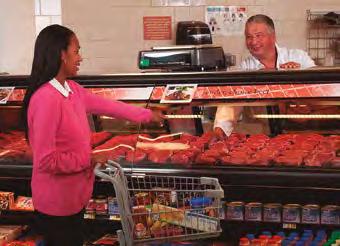
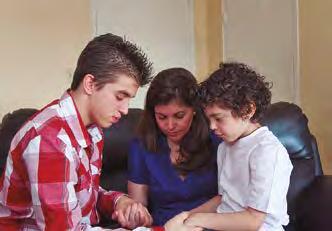

68
Understand
Each day, we have many opportunities to meet the needs of people around us. Whenever we smile, give a compliment, show interest, or stretch out a helping hand, we are fulfilling the needs of others, even though we might not be aware of it. When we help others meet their needs, we are also responding to an essential drive embedded in each of us; the need for relationship and connection.
Our relationships grow when we have a consistent attitude of gratefulness for the abundance in our own lives. Here is a cool truth: the more we give, both materially (things) and emotionally (kindness, care, etc.), the more grateful we become. Because when we are content with what we have, we realize we have no need to fear lack. There is more than enough. Do you know people who are materially poor but happy, or materially rich but unhappy? This is because true joy is not based on material things It is activated when we “give ourselves away.” The result is that we can operate in a spirit of generosity and openness to the needs of others. The more needs we meet, the more fulfilled we will be, because fulfillment does not come from what we get, but from what we give.
Comment - Think and respond
Who supplies the needy in your community?
Is there enough help for people in need in your community?
Do wealthy people have needs as well?
Act



Choose one specific need of someone in your community: someone at school, in your family, neighborhood, or club. It could be related to food, health, drug abuse, education, or emotional issues such as loneliness, fear, etc. What can you do to help that person?
Reflect
What are some needs in my life? Are they true needs, or are they wants? Do I sufficiently appreciate the things I have in my life? How do I show it?
I am grateful for the abundance I have and am committed to helping others meet their needs.
Economics
69
Willpower













































